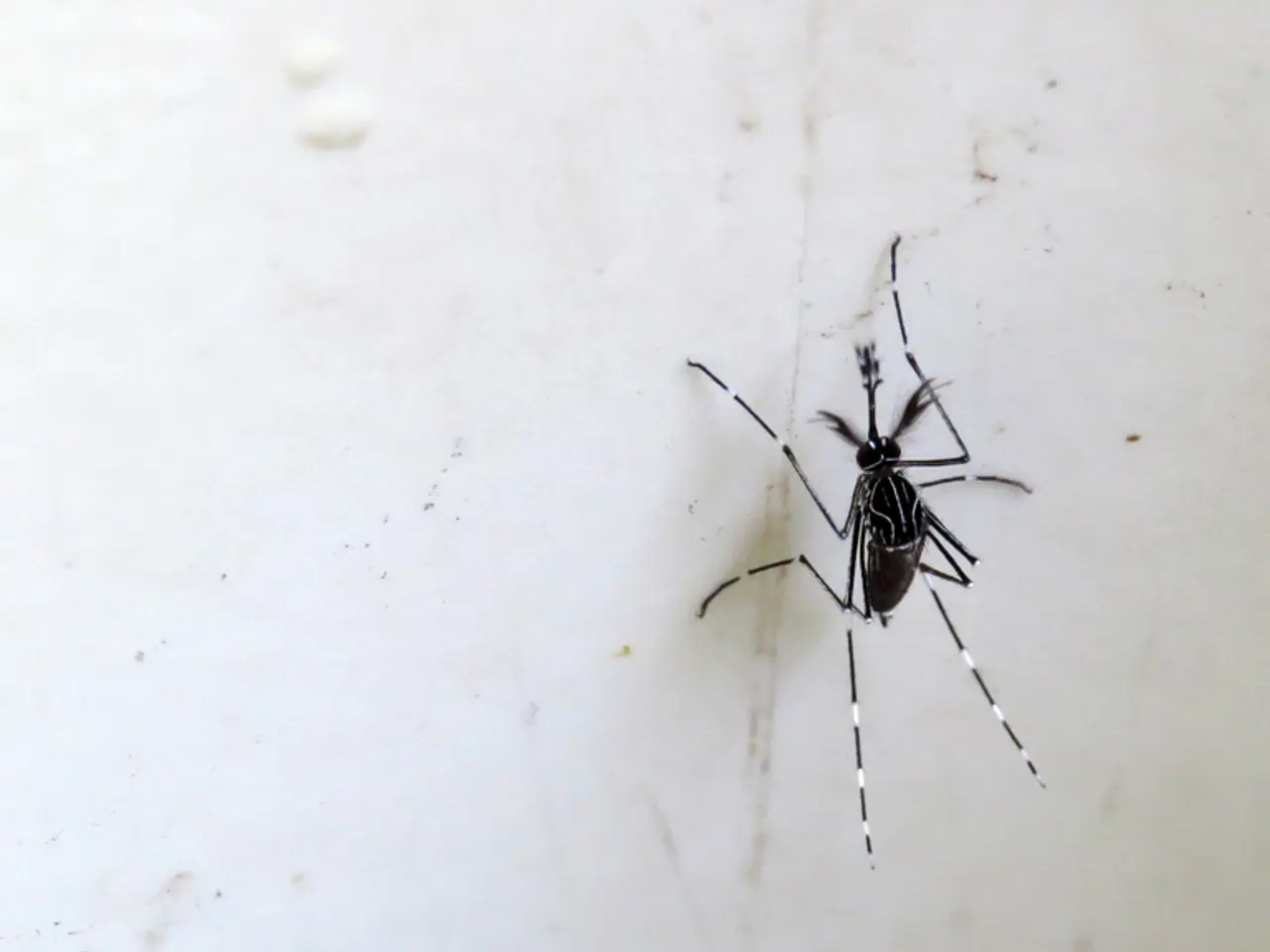Strategies for Travelers to Safeguard against Japanese Encephalitis in High-Risk Regions
Japanese Encephalitis (JE) is a mosquito-borne viral disease that primarily affects the central nervous system, causing severe and potentially life-threatening conditions. First described in Japan in 1871, JE has since become a major variant of human encephalitis in South Asian, Southeast Asian, East Asian, and Western Pacific regions.
The Japanese Encephalitis Virus (JEV) breaches the blood-brain barrier, damaging the brain and producing clinical manifestations such as high fever, headache, confusion, agitation, seizures, stiff neck and back, and in severe cases, coma. Symptoms typically appear between 5 to 15 days after being bitten by an infected mosquito and can progress rapidly.
Diagnosis of JE is usually a combination of history taking and laboratory testing, with cerebrospinal fluid extracted from the suspected patient to detect virus-specific antibodies (IgM). Approximately 68,000 symptomatic cases of JE are predicted each year, with about 49% of surviving patients estimated to exhibit neurological sequelae, such as deafness and emotional lability.
No specific treatment exists for JE, with management being supportive, based on symptoms. However, the most effective way to prevent JE is vaccination. The vaccination for JE consists of two doses 28 days apart, with the second dose ideally given a week before travel.
Travellers are highly recommended to consult their GP and inform them of their travel plans and duration, based on which the GP would recommend vaccination. The NHS recommends travellers to be cautious of JE in Japan, China, South Korea, India, Indonesia, Southeast Asian countries such as Thailand, Vietnam, and Malaysia.
Protective measures against JE include using insect repellent, wearing protective clothing, using a mosquito net for sleeping, and vaccination. Younger patients had higher odds of fatality from JE than older patients. A meta-analysis conducted by Cheng et al. reported a gradual decrease in case-fatality ratio (CFR) for JE.
It's crucial to remember that JE is a brain infection caused by the JEV, a member of the Orthoflavivirus genus, which includes viruses causing dengue, yellow fever, Zika, and West Nile fever. As with any travel, it's essential to take necessary precautions to protect oneself from potential health risks.
- Incorporating a health-and-wellness routine can help boost immunity and aid in recovery, as frequent exercise and good sleep hygiene have been scientifically proven to support the body's overall health.
- When planning travel to places like Japan, China, South Korea, India, Indonesia, or countries in Southeast Asia such as Thailand, Vietnam, and Malaysia, it's crucial to consider having proper vaccinations, which include the Japanese Encephalitis (JE) vaccine, as the disease is prevalent in these regions.
- Through investigating various lifestyles, researchers have discovered that diets rich in fruits and vegetables, as well as regular exercise and adequate sleep, can help reduce the risk of developing neurological conditions like those caused by Japanese Encephalitis (JE).




